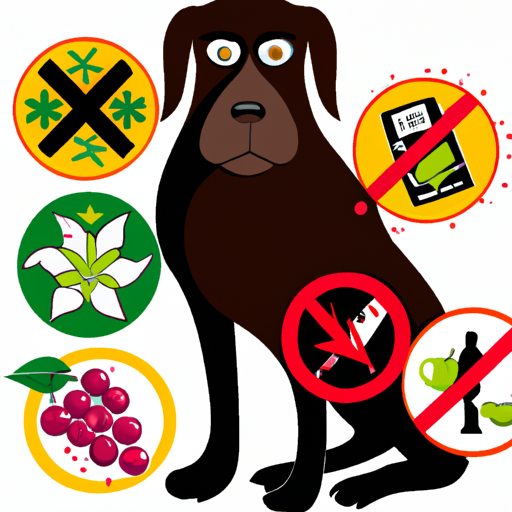As a vigilant and caring pet owner, it’s crucial to understand the hidden dangers that can potentially harm your beloved canine companion. Today, we’re taking a deep dive into the toxins that cause kidney failure in dogs, the silent menace that can seriously compromise your dog’s health.
H2: Understanding Kidney Failure in Dogs
Kidney failure in dogs, also known as renal failure, is a serious condition that usually affects older dogs but can occur in canines of any age. It happens when your dog’s kidneys can no longer efficiently filter waste products from the blood.
- Acute Kidney Failure is often caused by a sudden injury or exposure to harmful substances.
- Chronic Kidney Failure is a more gradual process and is often the result of your dog’s body’s long-term response to an ongoing disease or the aging process itself.
Your dog’s kidneys are vital organs, and when they start to fail, the consequences can be severe and life-threatening.
H2: Toxins that Cause Kidney Failure in Dogs
There are several substances that, if ingested by your dog, can lead to kidney failure. Here are the most common ones:
- Antifreeze (Ethylene Glycol): This is one of the most common causes of dog poisoning. A small amount can cause kidney failure in a matter of hours.
- Grapes and Raisins: The exact toxin in these fruits that affects dogs is unknown, but even a small amount can cause kidney failure.
- Certain Medications: Non-steroidal anti-inflammatory drugs (NSAIDs) and some antibiotics can harm a dog’s kidneys if given in high dosages or over a long period.
- Lilies: All parts of the lily plant are toxic to dogs and can cause kidney failure if ingested.
| Toxin | Source |
|---|---|
| Ethylene Glycol | Antifreeze |
| Unknown | Grapes and Raisins |
| Various | Certain Medications |
| Unknown | Lily Plants |
H2: Symptoms of Kidney Failure in Dogs
Being aware of the symptoms of kidney failure can help you react quickly and seek the necessary medical attention for your dog. Some of the most noticeable symptoms include:
- Increased thirst and urination
- Loss of appetite
- Vomiting and diarrhea
- Weight loss
- Lethargy
- Bad breath
- Oral ulcers
H2: Preventing Exposure to Toxins
Preventing your dog’s exposure to these toxins is your best line of defense against kidney failure. Here are some simple steps you can take:
- Keep human foods out of your dog’s reach
- Store medications securely
- Be aware of the plants in and around your home
- Use pet-safe alternatives to antifreeze and other toxic substances
FAQ
Q: Can a dog recover from kidney failure?
A: It depends on the cause and severity of the kidney failure. Acute kidney failure can be reversible if treated early. Chronic kidney failure is usually a progressive disease that can be managed but not cured.
Q: How can I tell if my dog has ingested a harmful substance?
A: Signs may include sudden changes in behavior, loss of appetite, vomiting, diarrhea, and lethargy. If you suspect your dog has ingested a harmful substance, contact your vet immediately.
Q: Are there any tests for kidney failure in dogs?
A: Yes, vets can perform blood tests and urinalysis to diagnose kidney failure in dogs.
Q: What are the treatment options for dogs with kidney failure?
A: Treatment may include fluid therapy, medications, dietary changes, and in some severe cases, dialysis.
Remember, your dog’s health is in your hands. Stay informed and proactive in protecting your furry friend from these hidden dangers.



